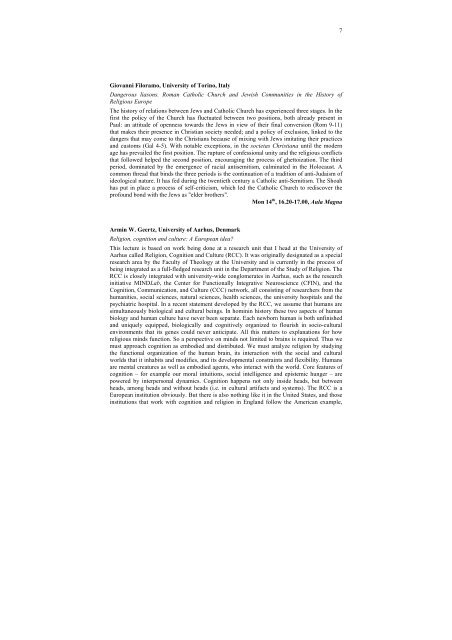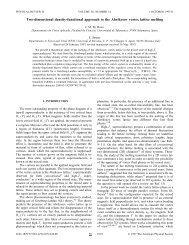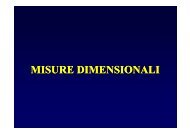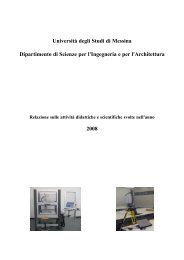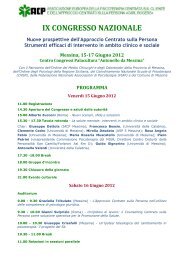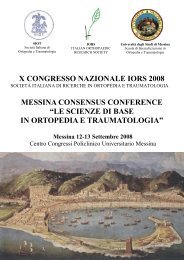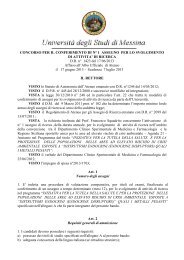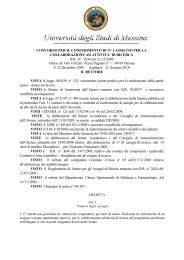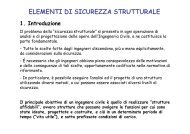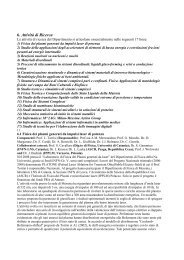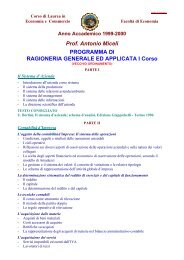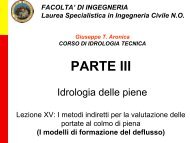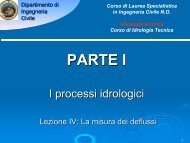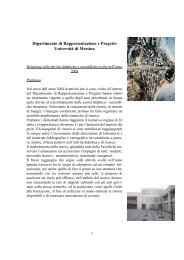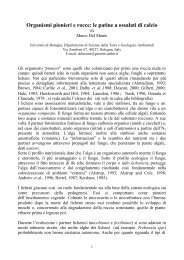PROGRAMME AND ABSTRACTS - Università degli Studi di Messina
PROGRAMME AND ABSTRACTS - Università degli Studi di Messina
PROGRAMME AND ABSTRACTS - Università degli Studi di Messina
Create successful ePaper yourself
Turn your PDF publications into a flip-book with our unique Google optimized e-Paper software.
Giovanni Filoramo, University of Torino, Italy<br />
Dangerous liasons. Roman Catholic Church and Jewish Communities in the History of<br />
Religious Europe<br />
The history of relations between Jews and Catholic Church has experienced three stages. In the<br />
first the policy of the Church has fluctuated between two positions, both already present in<br />
Paul: an attitude of openness towards the Jews in view of their final conversion (Rom 9-11)<br />
that makes their presence in Christian society needed; and a policy of exclusion, linked to the<br />
dangers that may come to the Christians because of mixing with Jews imitating their practices<br />
and customs (Gal 4-5). With notable exceptions, in the societas Christiana until the modern<br />
age has prevailed the first position. The rupture of confessional unity and the religious conflicts<br />
that followed helped the second position, encouraging the process of ghettoization. The third<br />
period, dominated by the emergence of racial antisemitism, culminated in the Holocaust. A<br />
common thread that binds the three periods is the continuation of a tra<strong>di</strong>tion of anti-Judaism of<br />
ideological nature. It has fed during the twentieth century a Catholic anti-Semitism. The Shoah<br />
has put in place a process of self-criticism, which led the Catholic Church to re<strong>di</strong>scover the<br />
profound bond with the Jews as "elder brothers".<br />
Mon 14 th , 16.20-17.00, Aula Magna<br />
Armin W. Geertz, University of Aarhus, Denmark<br />
Religion, cognition and culture: A European idea?<br />
This lecture is based on work being done at a research unit that I head at the University of<br />
Aarhus called Religion, Cognition and Culture (RCC). It was originally designated as a special<br />
research area by the Faculty of Theology at the University and is currently in the process of<br />
being integrated as a full-fledged research unit in the Department of the Study of Religion. The<br />
RCC is closely integrated with university-wide conglomerates in Aarhus, such as the research<br />
initiative MINDLab, the Center for Functionally Integrative Neuroscience (CFIN), and the<br />
Cognition, Communication, and Culture (CCC) network, all consisting of researchers from the<br />
humanities, social sciences, natural sciences, health sciences, the university hospitals and the<br />
psychiatric hospital. In a recent statement developed by the RCC, we assume that humans are<br />
simultaneously biological and cultural beings. In hominin history these two aspects of human<br />
biology and human culture have never been separate. Each newborn human is both unfinished<br />
and uniquely equipped, biologically and cognitively organized to flourish in socio-cultural<br />
environments that its genes could never anticipate. All this matters to explanations for how<br />
religious minds function. So a perspective on minds not limited to brains is required. Thus we<br />
must approach cognition as embo<strong>di</strong>ed and <strong>di</strong>stributed. We must analyze religion by studying<br />
the functional organization of the human brain, its interaction with the social and cultural<br />
worlds that it inhabits and mo<strong>di</strong>fies, and its developmental constraints and flexibility. Humans<br />
are mental creatures as well as embo<strong>di</strong>ed agents, who interact with the world. Core features of<br />
cognition – for example our moral intuitions, social intelligence and epistemic hunger – are<br />
powered by interpersonal dynamics. Cognition happens not only inside heads, but between<br />
heads, among heads and without heads (i.e. in cultural artifacts and systems). The RCC is a<br />
European institution obviously. But there is also nothing like it in the United States, and those<br />
institutions that work with cognition and religion in England follow the American example,<br />
7


